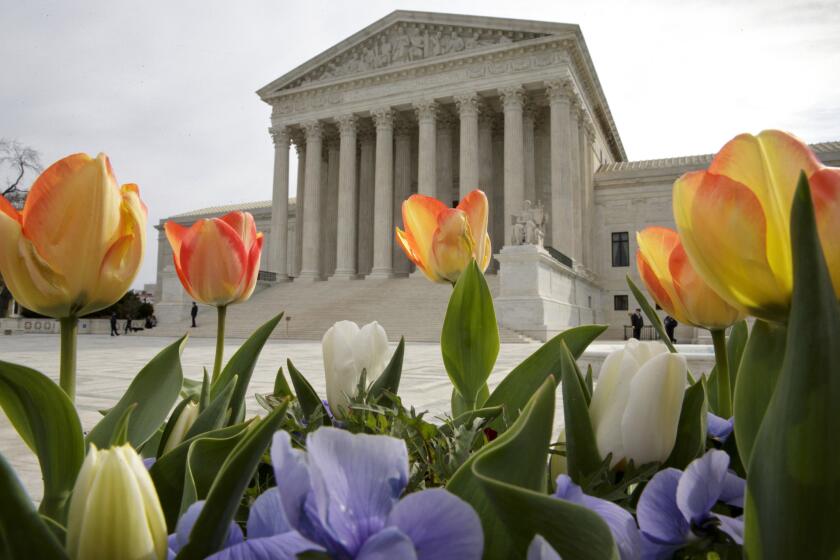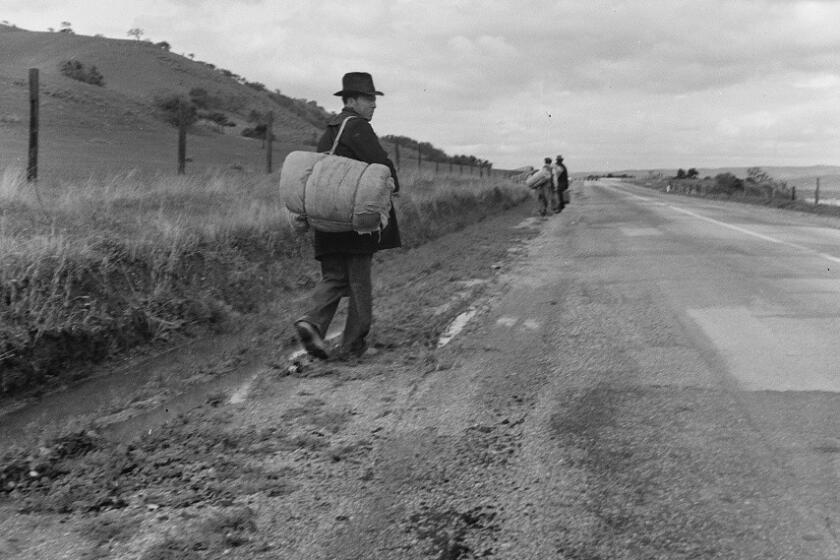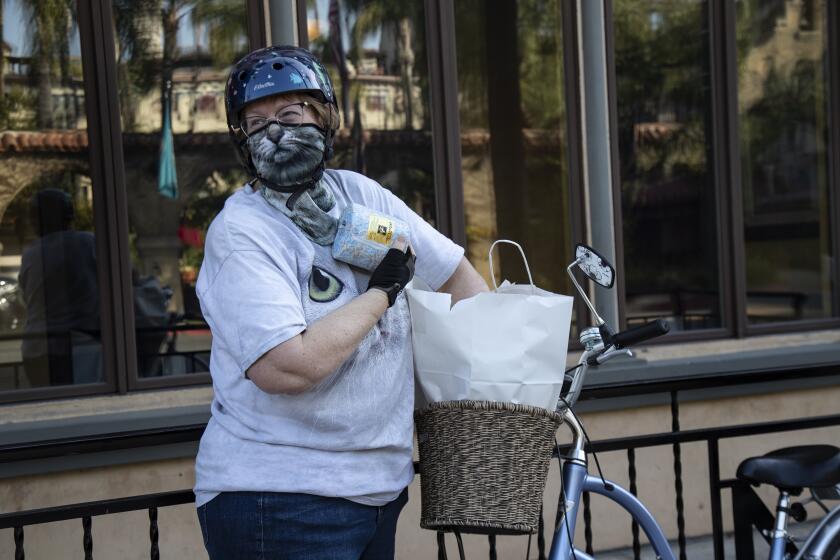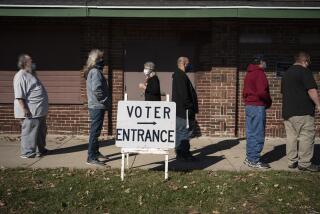Wisconsin moves ahead with Tuesday election despite coronavirus pandemic
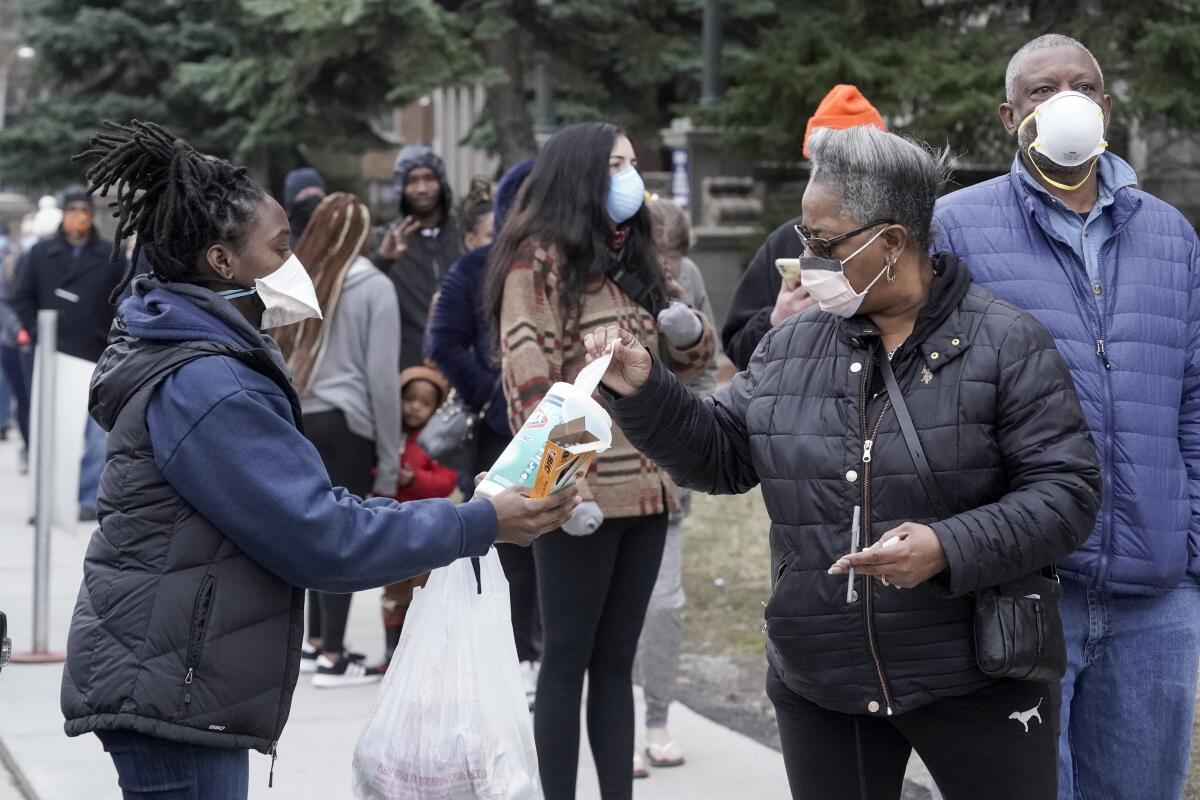
- Share via
MADISON, Wis. — Voters in Wisconsin are likely to face a choice Tuesday of participating in a presidential primary election or heeding warnings from public health officials to stay away from large crowds during the coronavirus pandemic.
Hours after Democratic Gov. Tony Evers issued an executive order Monday postponing the election for two months, the Wisconsin Supreme Court sided with Republicans who said he didn’t have the authority to reschedule the race on his own. Conservative justices on the U.S. Supreme Court quickly followed with a ruling blocking Democratic efforts to extend absentee voting.
The decision leaves Wisconsin as the only state with an election scheduled in April that is proceeding as planned. As other states prepare to vote in May or June, Wisconsin will be closely watched for signs that fears of the coronavirus may depress turnout or cause other problems at the polls.
Evers said he had no other options after the court ruled against him.
“There’s not a Plan B. There’s not a Plan C,” Evers said earlier Monday. After the court rulings, Evers said voters will now have to “wake up and have to choose between exercising their right to vote and staying healthy and safe. ”
Wisconsin, a closely divided battleground state, is first to hold an election amidst the pandemic
Former Vice President Joe Biden already has a commanding delegate lead over Vermont Sen. Bernie Sanders, and the Wisconsin results aren’t likely to dampen his march to the Democratic nomination. But the tumult in one of the most critical general election battlegrounds was a reminder of how the coronavirus has upended politics during an election year.
The tension in Wisconsin over whether and how to proceed with the election had been building for weeks. Evers and Republicans initially agreed it was imperative for the election to proceed because thousands of local offices are on the ballot Tuesday for terms that begin in two weeks. There is also a state Supreme Court election.
Evers himself had questioned whether he had the power to reschedule the election, but said the worsening situation, including an increase in COVID-19 deaths from 56 on Friday to 77 on Monday, made clear there was no way to safely move forward. The governor, who has issued a stay-at-home order and closed all nonessential businesses, said he sought the delay because he was motivated by protecting public health, not politics.
Disruptive events like the COVID-19 outbreak can end political inertia and result in bold changes
He was thwarted by conservatives on two courts. The Wisconsin Supreme Court ruled 4-2, with four conservatives in support and two liberals against, that Evers lacked the authority to move the election on his own.
The U.S. Supreme Court split 5-4, with the five Republican-appointed justices siding with the national and state party to overturn a lower court ruling that had expanded absentee voting. In an unsigned opinion, the court said absentee ballots must be hand-delivered by Tuesday evening or postmarked by Tuesday, although they can arrive at clerks’ offices as late as April 13.
The lower court order that extended absentee balloting through April 13 had stipulated that election returns not be announced until then. Wisconsin Election Commission spokesman Reid Magney said that portion of the lower court’s order remained in effect.
As of Monday, nearly 1.3 million absentee ballots had been requested but only about 57% of those had been returned. It’s unclear how many of the outstanding 539,000 ballots will be in voters’ hands by Tuesday to meet the April 7 postmark deadline.
Democratic state Sen. Jon Erpenbach said Republicans in his state fought a delay because they want to suppress turnout, particularly in Democrat-heavy Milwaukee, because that will benefit Republicans.
“Democrats have always been good about getting out the vote on the day of,” Erpenbach said. “If you’re looking at the newspapers, watching TV, you know right now it’s dangerous.”
Evers is among the governors who have issued a stay-at-home order and closed all nonessential businesses.
“Your choice is to go and vote in person and take a chance on contracting COVID-19 or stay home,” Erpenbach said. “What do you think people are going to do?”
Ahead of the elections, thousands of poll workers had said they wouldn’t work, leading Milwaukee to reduce its planned number of polling sites from 180 to just five. More than 2,500 National Guard troops were dispatched to staff the polls. They were also distributing supplies, including hand sanitizer, to polling sites across the state. In Madison, city workers were erecting Plexiglas barriers to protect poll workers, and voters were encouraged to bring their own pens to mark the ballots.
George Dunst, 76, of Madison, who has volunteered at his local polling site for nearly every election since he retired, said he’s not going Tuesday amid fears of contracting COVID-19.
“No matter what safety precautions you take, there’s going to be exposure,” he said. “Who knows who comes into the polling place?”
The latest updates from our reporters in California and around the world
More to Read
Get the L.A. Times Politics newsletter
Deeply reported insights into legislation, politics and policy from Sacramento, Washington and beyond. In your inbox three times per week.
You may occasionally receive promotional content from the Los Angeles Times.
